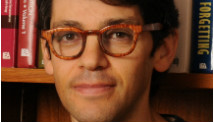SAN FRANCISCO Medicare paid billions in taxpayer dollars to nursing homes nationwide that were not meeting basic requirements to look after their residents, government investigators have found.
The report, released Thursday by the Department of Health and Human Services' inspector general, said Medicare paid about $5.1 billion for patients to stay in skilled nursing facilities that failed to meet federal quality of care rules in 2009, in some cases resulting in dangerous and neglectful conditions.
One out of every three times patients wound up in nursing homes that year, they landed in facilities that failed to follow basic care requirements laid out by the federal agency that administers Medicare, investigators estimated.
By law, nursing homes need to write up care plans specially tailored for each resident, so doctors, nurses, therapists and all other caregivers are on the same page about how to help residents reach the highest possible levels of physical, mental and psychological well-being.
Not only are residents often going without the crucial help they need, but the government could be spending taxpayer money on facilities that could endanger people's health, the report concluded. The findings come as concerns about health care quality and costs are garnering heightened attention as the Obama administration implements the nation's sweeping health care overhaul.
"These findings raise concerns about what Medicare is paying for," the report said.
Investigators estimate that in one out of five stays, patients' health problems weren't addressed in the care plans, falling far short of government directives. For example, one home made no plans to monitor a patient's use of two anti-psychotic drugs and one depression medication, even though the drugs could have serious side effects.
In other cases, residents got therapy they didn't need, which the report said was in the nursing homes' financial interest because they would be reimbursed at a higher rate by Medicare.
In one example, a patient kept getting physical and occupational therapy even though the care plan said all the health goals had been met, the report said.
The Office of Inspector General's report was based on medical records from 190 patient visits to nursing homes in 42 states that lasted at least three weeks, which investigators said gave them a statistically valid sample of Medicare beneficiaries' experiences in skilled nursing facilities.
That sample represents about 1.1 million patient visits to nursing homes nationwide in 2009, the most recent year for which data was available, according to the review.
Overall, the review raises questions about whether the system is allowing homes to get paid for poor quality services that may be harming residents, investigators said, and recommended that the Centers for Medicare & Medicaid Services tie payments to homes' abilities to meet basic care requirements. The report also recommended that the agency strengthen its regulations and ramp up its oversight. The review did not name individual homes, nor did it estimate the number of patients who had been mistreated, but instead looked at the overall number of stays in which problems arose.
In response, the agency agreed that it should consider tying Medicare reimbursements to homes' provision of good care. CMS also said in written comments that it is reviewing its own regulations to improve enforcement at the homes.
"Medicare has made significant changes to the way we pay providers thanks to the health care law, to reward better quality care," Medicare spokesman Brian Cook said in a statement to The Associated Press. "We are taking steps to make sure these facilities have the resources to improve the quality of their care, and make sure Medicare is paying for the quality of care that beneficiaries are entitled to."
CMS hires state-level agencies to survey the homes and make sure they are complying with federal law, and can require correction plans, deny payment or end a contract with a home if major deficiencies come to light. The agency also said it would follow up on potential enforcement at the homes featured in the report.
Greg Crist, a Washington-based spokeswoman for the American Health Care Association, which represents the largest share of skilled nursing facilities nationwide, said overall, nursing home operators are well regulated and follow federal guidelines, but added that he could not fully comment on the report's conclusions without having had the chance to read it.
"Our members begin every treatment with the individual's personal health needs at the forefront. This is a hands-on process, involving doctors and even family members in an effort to enhance the health outcome of the patient," Crist said.
Virginia Fichera, who has relatives in two nursing homes in New York, said she would welcome a greater push for accountability at skilled nursing facilities.
"Once you're in a nursing home, if things don't go right, you're really a prisoner," said Fichera, a retired professor in Sterling, N.Y. "As a concerned relative, you just want to know the care is good, and if there are problems, why they are happening and when they'll be fixed."
Once residents are ready to go back home or transfer to another facility, federal law also requires that the homes write special plans to make sure patients are safely discharged.
Investigators found the homes didn't always do what was needed to ensure a smooth transition.
In nearly one-third of cases, facilities also did not provide enough information when the patient moved to another setting, the report found.












